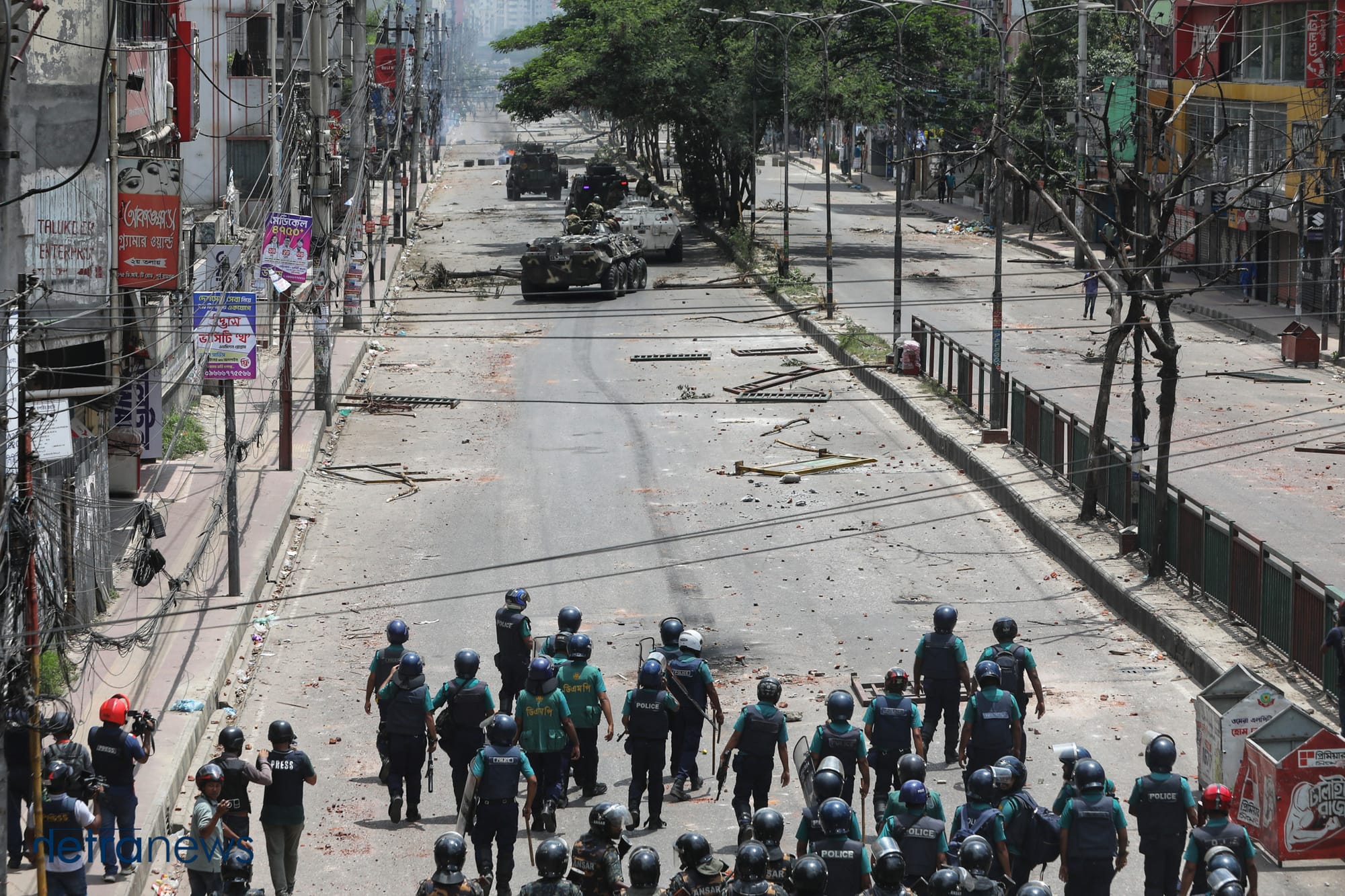- 2,967
- 1,472
- Copy to clipboard
- Thread starter
- Moderator
- #97
Couple of updates from DW...both feature good commentary by Tasneem Khalil, who is Editor in chief of Netra News.
Follow along with the video below to see how to install our site as a web app on your home screen.

Note: this_feature_currently_requires_accessing_site_using_safari
No he didn't!Didn't Ziaur Rehman betray you guys?
First of all, back in the 70's BD armed forces were too small to have any Lt. General/3-star rank. Zia & his predecessor K. M. Shafiullah, both became BA chiefs as Major General/2-star rank.He couldn't become a three-star general and president at the age of less than 40 without the help of your guys.
China never offers anyone strategic partnership, forget 50 years? If that was the case your state in the West would've signed such a lofty 50-year strategic partnership deal with China a long time ago. Even N. Korea doesn't have such a deal, they only have a mutual defense pact, but there's no time limit in this defense pact (50-years or otherwise). If China was offering such deals, they would've offered something like what you're saying to the Vietnamese, when Chinese leadership was supplying them with weapons & politically supporting them against the US.He blatantly refused China's 50-year strategic partnership offer.
BD didn't have any diplomatic relationship with China, until Zia established it in January 1976! He also repaired BD's relationship with Saudis (and other Muslim nations) and the US/West, while distancing us from Soviet/Indians (the ones who'd go onto kill Zia in 1981).The revolutionaries, Sena Parishad, worked very hard to build a good relationship with China, and Ziaur Rehman destroyed it only to stay in power by pleasing India.
LOL! So you think Soviets & Indians trying to stage multiple coups with financing and support, to destabilize BD or overthrow a govt. that doesn't kowtow to them should be allowed to happen? Forget Zia, the entire military leadership, along with the civilian leadership, was all for ruthlessly culling these foreign-funded agents.He even killed thousands of Sena Parishad soldiers, burying them in their uniform and boots in the middle of the night in unknown graves.
Along with millions of BD's who have been killed, and the killing is still continuing!Later, most of their top leaders became victims of the kangaroo court of Hasina and became martyred.
China will act decisively this time. On the recent Peking trip, they sent back Hasina home empty-handed.
That's just his BS! I have replied to him about this in another post...I don't know if Ziaur Rahman was trying to please India,
She has always been sitting on ran dee an lap, not sure what would change so suddenly. But transit of their military hardware, goods/resupply and even troops disguised as civilians all the up to the Chinese border would be a big one.I agree (sense) that yes CCP have told off Hasina with a 'come to Jesus' meeting. That may have been the reason why she hurried back.





They got the delivery via Hungary. BAL is very close to Israelis behind the scene and with Modi connection, it is a no brainer.BD Internal security forces are using Spearhead system, which they acquired from Israeli firm Passitora (needless to say that is illegal since Bangladesh does not recognize Israel). These are mobile surveillance van that can hack into phones within a radius of about half a kilometer.
Loading...